The Brooks Cascadia 17, like the previous iterations of the line, is everything you need in a trail running shoe and nothing you don’t. It slots in nicely alongside the rest of the Brooks trail line including the plush, bouncy Brooks Caldera 6. Let’s dig into the features that make the Brooks Cascadia 17 one of the more dependable trail (running or hiking) options on the market.
Brooks Cascadia 17
Release Date: July 1, 2023
Price: $140
Weight: Men’s 11 oz., Women’s 9.8 oz.
Drop: 8mm
Sizing: True to size
- Rundown: The Brooks Cascadia 17 is a modern tech take on a classic trail runner. This great, affordable shoe provides stability, reliability, and durability. The Cascadia 17 is an honest workhorse that will get the job done.
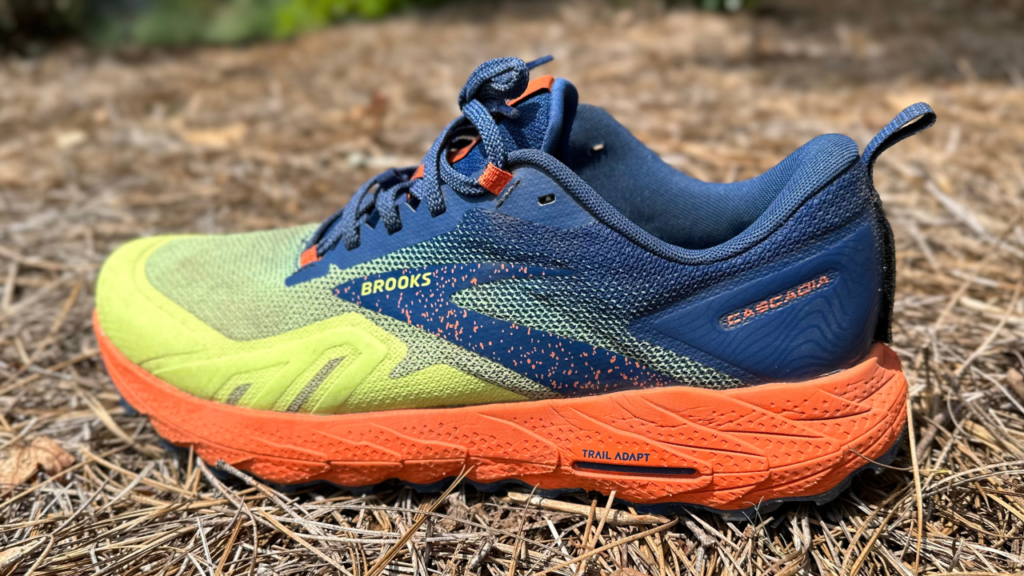
Midsole
Sam: The midsole on the Brooks Cascadia 17 has received an update for added stability, which Brooks dubs the “Trail Adapt System”, which integrated the midsole with the rock plate and outsole to provide a smooth ride over rougher terrain. The rock plate offers some good protection from sharp ground, and I haven’t found any pain points in the midsole.
The midsole is made up of Brooks’ DNA Loft v2 foam, which was a new addition to the Cascadia lineage on the Cascadia 16. I found that the shoe was surprisingly comfortable out of the box. The midsole doesn’t have a lot of bounce or response to it, but it’s soft and secure; it feels like a shoe tailored towards stability and that is the case with this midsole.
With a stack height of 20mm in the heel, you’re low to the ground. I was pleased with the way the shoe performed over technical terrain and felt that the midsole offered enough support. An 8mm drop would typically frighten me a bit on the trails as I’d assume less stability, but the Trail Adapt System has it covered for a safe ride.
I enjoy running in this shoe and, at a price point of $140, you’ll certainly get your money’s worth out of the midsole. The overall approachable take on the midsole makes this a great option for all levels of trail runners. It can be an everyday workhorse for your avid runner or a safe and secure option for someone just getting into the sport. It’s not flashy, but it will be comfortable, and it will get the job done.
Drew: I agree with Sam that the DNA Loft v2 on the Brooks Cascadia 17 is solid but doesn’t deliver any bounce. If you want a bouncy midsole, grab the Brooks Caldera 6.
The Cascadia 17’s midsole is more protective than anything. I felt low to the ground, nimble, and stable. Even the occasional slip in mud couldn’t turn the shoe over or make me stumble. It’s a comfortable midsole that handles various types of terrain without feeling like you have too little padding underfoot.
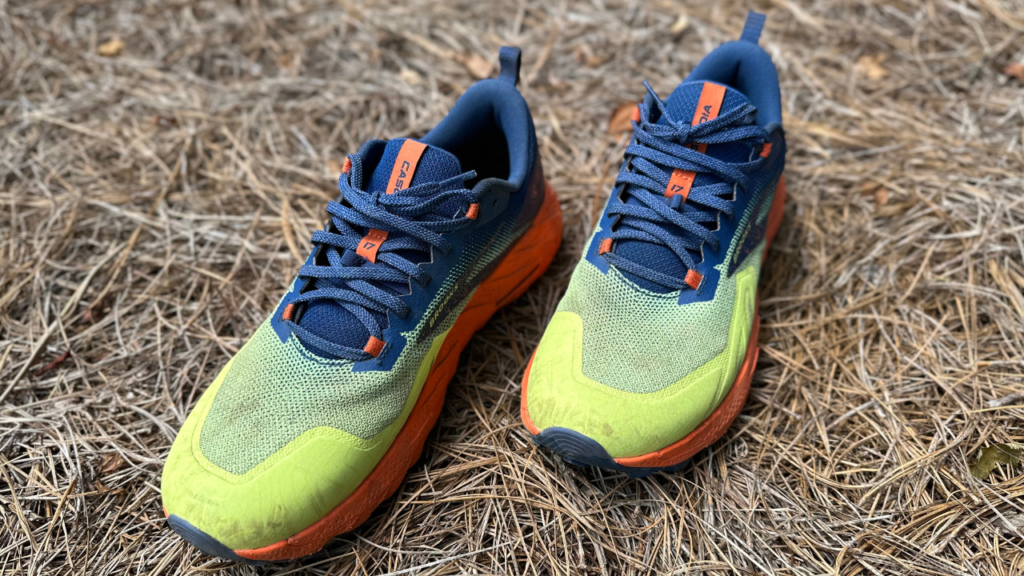
Upper
Sam: The Brooks Cascadia 17 has a burly, but comfortable upper. A single piece of woven mesh with a TPU overlay near the toe and a mudguard. Over several miles, this upper has shown basically no signs of wear outside of dirt. The tongue is gusseted and fits nicely to secure your foot in the shoe; I found no signs of rubbing or bunching at all. To be honest, the shoe fits like a glove.
In a world where trail uppers are in a race to become the sleekest and most light on the market, it’s strangely refreshing to simply slip your foot in an old-school way and lace up. I haven’t taken the shoe through much water, but during hot summer days, I have found my foot breathes surprisingly well, which would lead me to believe that the shoe will drain just fine. The mesh on the Brooks Cascadia 17 is colored with a new process called PrintDyed. This process saves about 2/3 of the typical energy used in dying and saves 75% on water usage, which is awesome. Kudos to Brooks for focusing on making the shoes pop and cutting back on waste.
Drew: As Sam mentioned, the upper is a pretty traditional trail shoe upper. But Brooks nailed it. The fit is fantastic. Like previous Cascadia models, it’s wide enough to accommodate various foot types and there’s plenty of room for toe splay up front. That’s extremely helpful when tackling trails that require you to dig your toes in for extra control.
I too got plenty of airflow from the upper. I had the chance to use the Brooks Cascadia 17 to cross various streams along the trails I traveled. The water drained nicely every time. Swamp foot won’t be an issue unless you’re running the most humid and boggy trails where no current shoe is likely to provide relief.
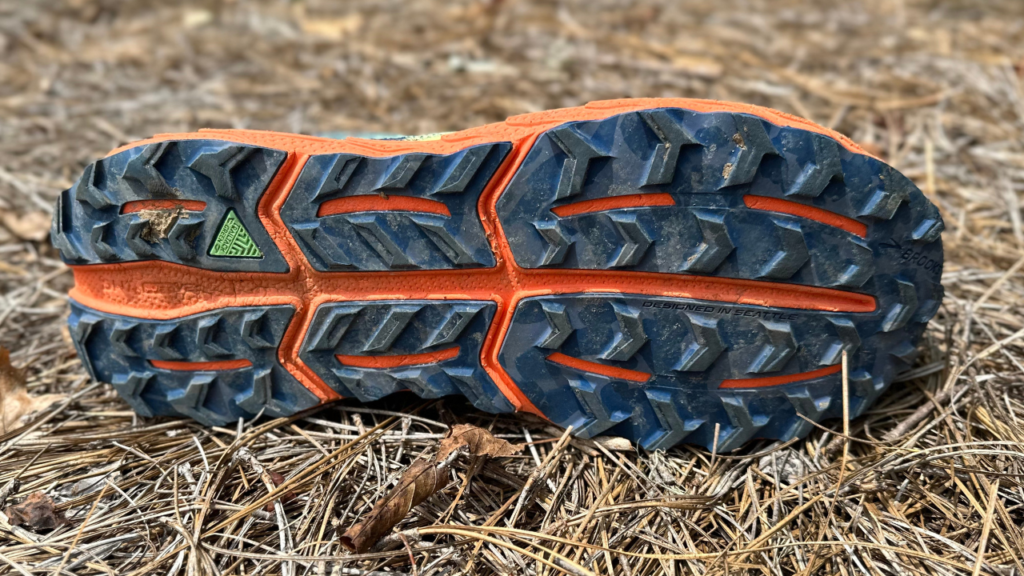
Outsole
Sam: Brooks returns to the Cascadia 17 with what they call their “TrailTack” outsole, a rugged design featuring 4.5mm lugs with a dense pattern of 6 individual pieces. The multi-piece design is engineered to provide good traction over uneven surfaces, allowing the shoe to slightly shift and bend with the contortion of your foot. I have taken the Cascadia 17 on all types of terrain; technical scrambles and smooth single track. The rubber is sticky and finds its way around anything that I’ve thrown at it. However, unlike some ultra-treads, the Cascadia 17 doesn’t feel too bulky on smooth trails. It’s a versatile bottom that can boast a smooth ride on most terrains.
The newest version of the TrailTack has been upgraded to the TrailTack Green, which uses a composition of 25% recycled material. The rubber is also designed to provide traction on dry or wet surfaces. Although it doesn’t look crazy, the outsole is fairly impressive for a shoe costing $140 and, again, a great option for all levels of trail and runner.
Drew: The Brooks Cascadia 17’s outsole felt like a solid upgrade from the Cascadia 16. It’s likely the combination of the Trail Adapt system and the revitalized outsole that did the trick. I always felt in control of my footfalls on technical terrain, dirty summer snow on tall peaks, and on wet rocks and wood.
The 4.5mm lugs dug into the ground when possible but also stuck nicely to slick smooth rocks. And running fast or hiking slow didn’t make a difference. The traction was always reliable. Even slips from bad foot placement on loose rocks didn’t turn into full-blown disasters. A little slippage and then as soon as the outsole found something to grab onto, it did. An outsole like this is a huge confidence builder.
Is the Brooks Cascadia 17 wide foot friendly?
Yes. The Brooks Cascadia 17 has a friendly profile that should fit people with wider feet.
Is the Brooks Cascadia 17 worth $140?
Absolutely. Most trail shoes, even introductory pairs, cost $150 and above these days. For someone looking to get into trail running, or someone who doesn’t want to spend $180 on a shoe that will hold up for 300+ miles, this is a great option.
Cons
Sam: Hard to find a lot of cons for this shoe as it doesn’t claim to be anything it’s not. I noticed some stiffness in the front of the shoe through the first 20-30 miles which made it a bit uncomfortable for my toes. Because the shoe is built for all levels, you won’t get the upper-end performance highly experienced runners might look for. It’s a humble shoe; the midsole isn’t flashy, and it’s not built to take you fast, which may be a downside for some runners. However, the shoe doesn’t claim to be. It delivers on what it promises.
Drew: As Sam said, the only negative is if you’re looking for something bouncier, lighter, or with more stack height. This is a great trail shoe for hikers, trail running beginners, and anyone who isn’t bombing trails with no regard for life and limb. It’s steady and dependable. If that’s what you’re looking for, you won’t find much, if anything, to complain about.
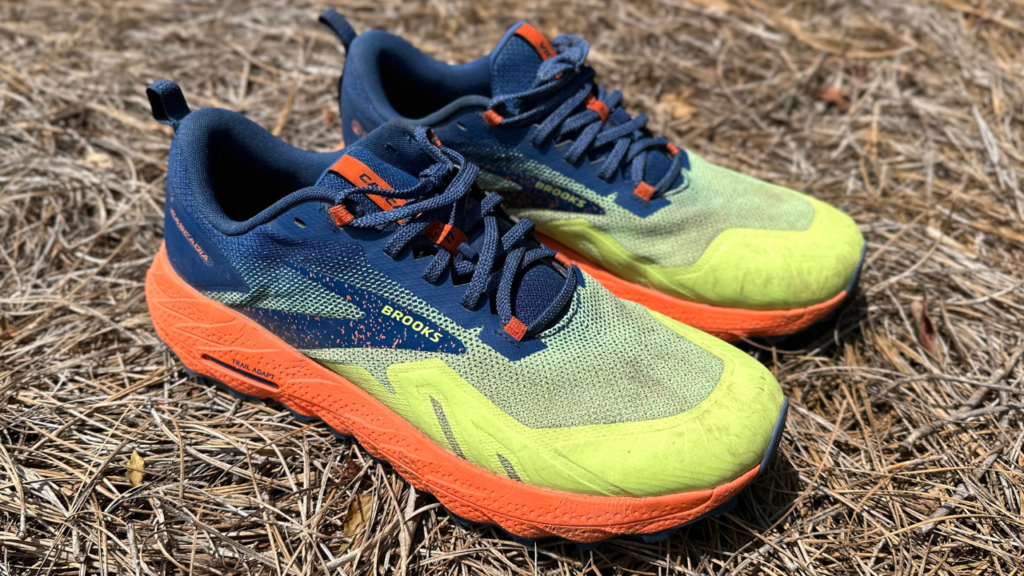
Brooks Cascadia 17 Summary
Sam: The Brooks Cascadia 17 was a pleasant surprise for someone who hasn’t tried a previous iteration of the shoe. To be honest, I was expecting something too plain and basic for my liking but have been pleasantly surprised with the shoe’s honest performance. The Brooks Cascadia 17 provides a stable and smooth ride for most terrains and can be a great shoe for your everyday run. It won’t give you a boost on your speed days, but hey, it’s not supposed to. This shoe delivers on its purpose and that’s what counts.
Drew: The Brooks Cascadia 17 is a stable, dependable trail companion whether you’re running or hiking. The traction doesn’t quit, the midsole is protective so you won’t get beaten up by rocks or roots, and the upper is comfortable yet breathable. If you need a trail shoe that delivers value at its price point, will last a long time, and be solid across a range of trails and use cases, you’ve found it.

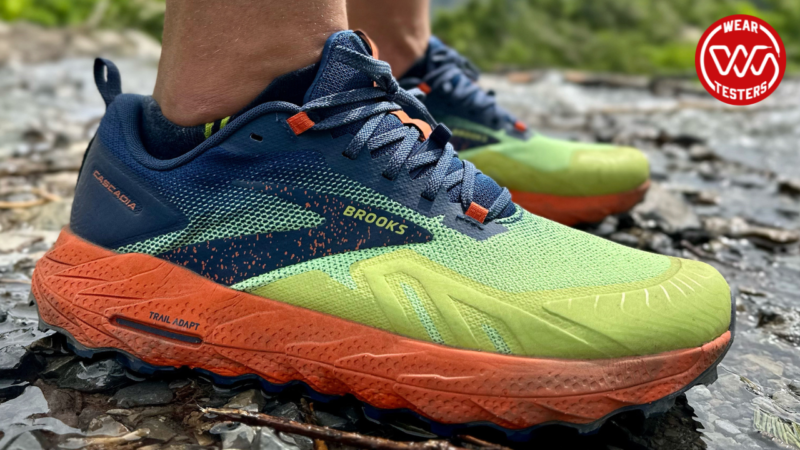
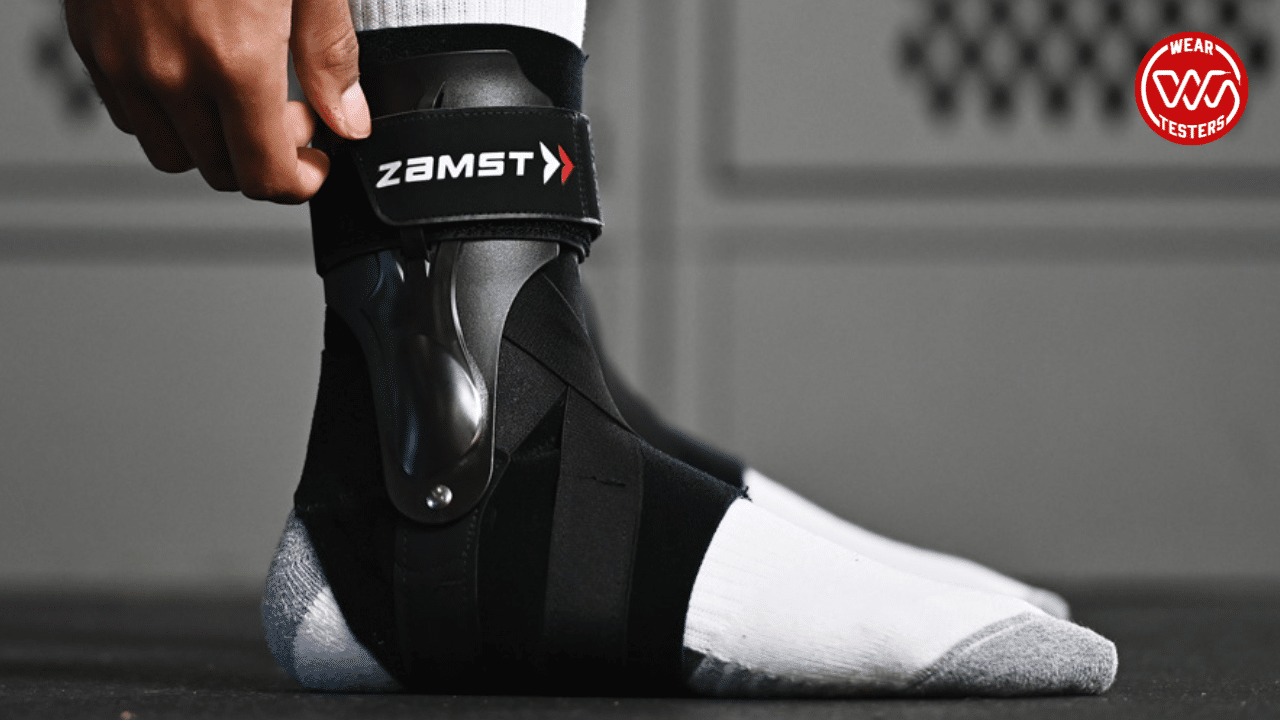
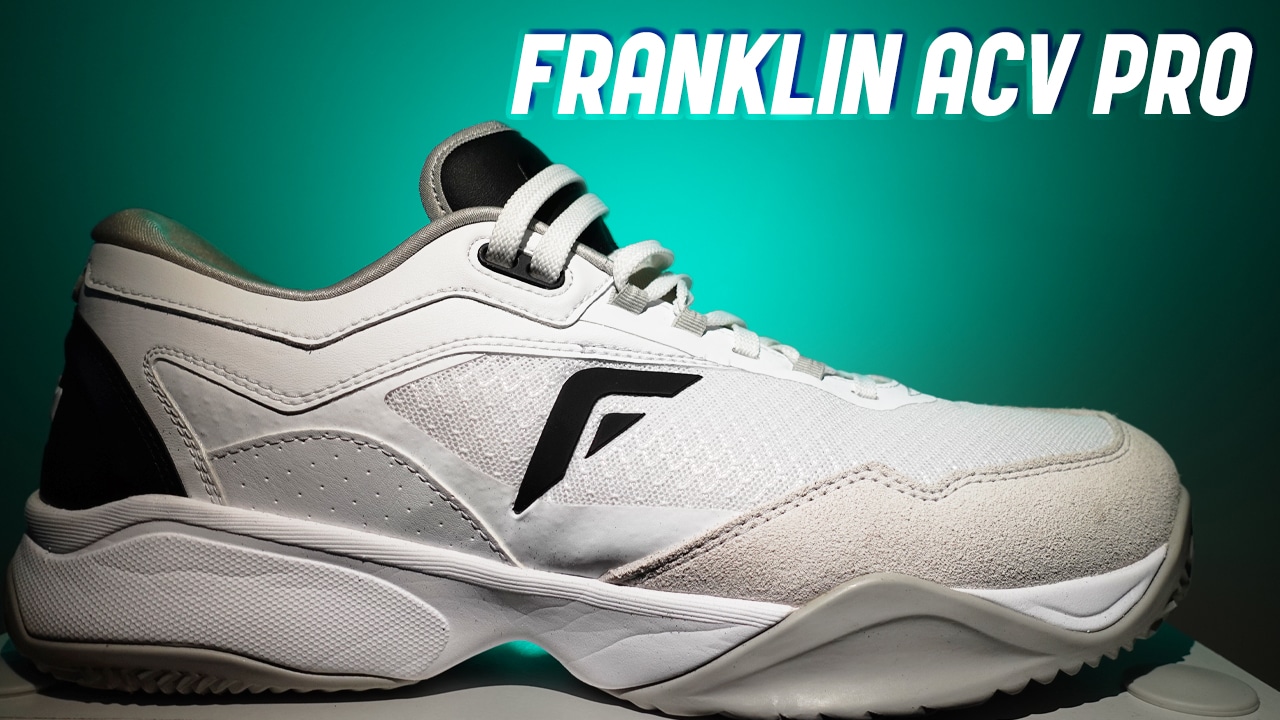
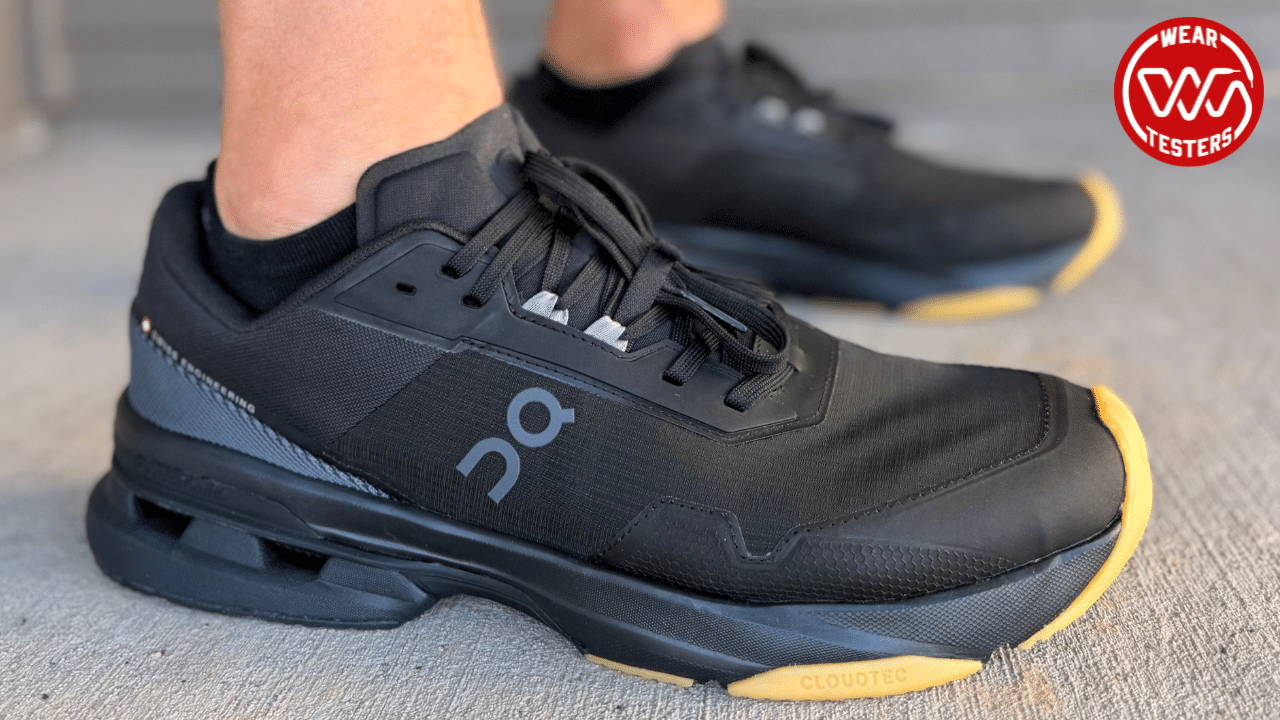
Scott Jurek set the world record on the AT in 46 days wearing Cascadias. That’s a testament to their capabilities
Do you know which Cascadia model he used for the AT world record?